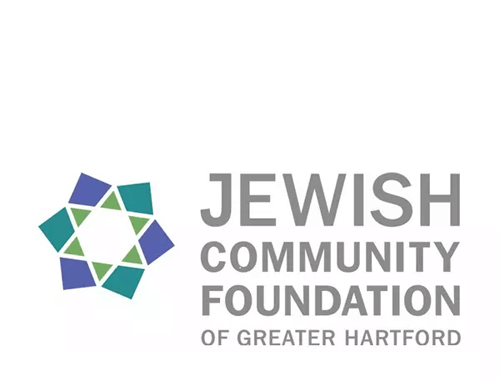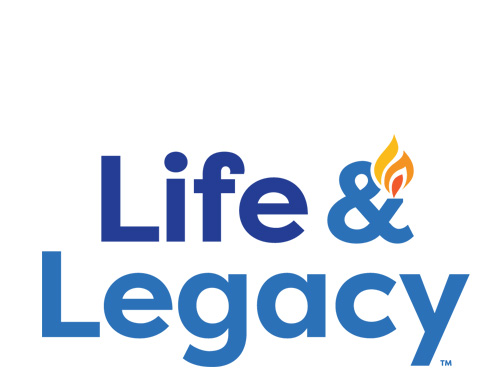Schechter Shavua: September 30, 2022
Jessica Zachs: Providing Hygiene Necessities through Dignity Grows
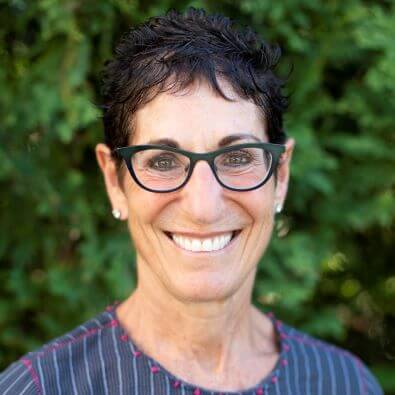 Kol hakavod to Schechter alumni parent, former Board Co-President, and Current Board Member Jessica Zachs! Jessica was recently honored by TroubleMakers for Good for her tireless work as founder and Chairwoman of Dignity Grows, the only national program that pairs period products with comprehensive hygiene necessities and helps recipients to thrive and not just survive. TroubleMakers for Good is a female-led organization that believes women who cause Trouble will change the world for the better.
Kol hakavod to Schechter alumni parent, former Board Co-President, and Current Board Member Jessica Zachs! Jessica was recently honored by TroubleMakers for Good for her tireless work as founder and Chairwoman of Dignity Grows, the only national program that pairs period products with comprehensive hygiene necessities and helps recipients to thrive and not just survive. TroubleMakers for Good is a female-led organization that believes women who cause Trouble will change the world for the better.
Please join Schechter in applauding Jessica’s vision and tremendous work to uplift women and girls across the United States. Jessica is an inspiration for her dedication to tikkun olam, and we are proud that she is such an integral part of the Schechter community as well.
You can watch an interview with Jessica about her Trouble for Good HERE.
Boris Levin: Clean Energy Technology through Mott Corporation
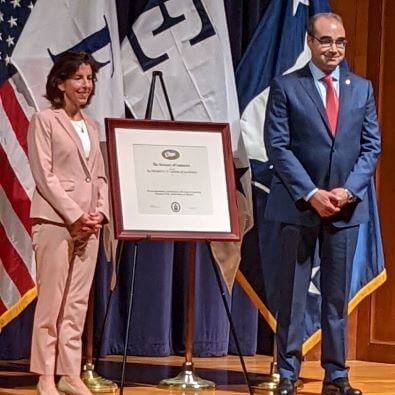 Mazal tov to Boris Levin, a current Schechter parent and former Treasurer of the Board, whose company, the Mott Corporation, recently received the prestigious President’s “E” Award. This award was created by Executive Order of the President and recognizes Mott as an organization which contributes significantly in the effort to increase U.S. exports.
Mazal tov to Boris Levin, a current Schechter parent and former Treasurer of the Board, whose company, the Mott Corporation, recently received the prestigious President’s “E” Award. This award was created by Executive Order of the President and recognizes Mott as an organization which contributes significantly in the effort to increase U.S. exports.
Melissa Grosso, Director of the U.S. Commercial Service’s Connecticut office, noted, “Mott Corporation supports many customers in transitioning to clean energy with its technology and helped to increase production of green hydrogen in many countries.” This summer, Boris traveled to Washington, DC to accept this award from the U.S. Secretary of Commerce.
Boris served on the Schechter Board of Trustees for five years; as Treasurer, he provided invaluable advice regarding the budget and finances.
Radenka Maric: University of Connecticut's New President
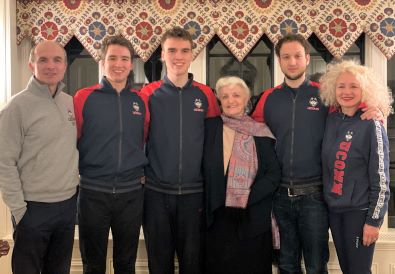 Kol hakavod to Radenka Maric, a member of the Schechter Board of Trustees who, earlier this week, was officially named President of the University of Connecticut. As President of the UConn system, she oversees 10 schools and colleges at the Storrs campus, the schools of Law and Social Work in Hartford, four regional campuses, and the schools of Medicine and Dental Medicine at UConn Health in Farmington. She has been serving as the interim UConn President since February 2022.
Kol hakavod to Radenka Maric, a member of the Schechter Board of Trustees who, earlier this week, was officially named President of the University of Connecticut. As President of the UConn system, she oversees 10 schools and colleges at the Storrs campus, the schools of Law and Social Work in Hartford, four regional campuses, and the schools of Medicine and Dental Medicine at UConn Health in Farmington. She has been serving as the interim UConn President since February 2022.
Recently, Radenka was inducted into the Immigrant Heritage Hall of Fame as an acknowledgement of her many accomplishments following her childhood in the former Yugoslavia. Prior to her appointment as president, Radenka was Vice President for Research, Innovation, and Entrepreneurship at UConn overseeing a $375 million research enterprise. She is a leader in technologies for clean energy and sustainability and is a dedicated scholar, researcher, leader, and humanitarian. We are proud to have Radenka as part of the Schechter community!
Schechter Swag: Place Your Order Today
 Show your #schechterhartfordpride! Now available by popular demand: Schechter t-shirts (short and long sleeved), sweatshirts, comfy pajama pants, and kippot!!
Show your #schechterhartfordpride! Now available by popular demand: Schechter t-shirts (short and long sleeved), sweatshirts, comfy pajama pants, and kippot!!
Use this link to place your order. All orders must be placed by Sunday, October 16th (sorry, no extensions) and will be shipped directly to your home. Please reach out to the Parent Association if you have any questions or concerns.
Shanah Tovah!
The Schechter Parent Association
Rachel Glantz/ Karen Tuvin/ Danielle Weiss
Shabbat Shuvah—Between Rosh Hashanah and Yom Kippur
 The following story appears in Elie Wiesel’s Souls on Fire, a collection of stories about the early Hasidic masters:
The following story appears in Elie Wiesel’s Souls on Fire, a collection of stories about the early Hasidic masters:
A woman begged the Maggid of Kozhenitz to pray for her; she wanted a child.
“My mother was as unhappy as you are, and for the same reason,” he told her. “Until the day she met the Ba’al Shem Tov. She presented him with a cape. I was born the following year.”
“Thank you,” the woman said, beaming. “I’ll do as your mother did. I’ll bring you the most beautiful cape I can find.”
The Maggid of Kozhenitz smiled: “No, that won’t help you. You see, my mother didn’t know this story.”
I love this tale because it so neatly captures the dreams and disappointments we can experience on Yom Kippur. Who among us hasn’t desperately prayed for something? Sometimes our prayers are answered, but often they are not. And the idea that giving someone a cape could guarantee us a baby is so tempting—both to us, and to the woman in the story—even if we know the world doesn’t work that way. We can be left wondering at the point of all the words in the mah zor(High Holiday prayerbook).
But this story teaches us that if we simply mimic another’s path, we should expect nothing in response; we each have to find our own path to prayer. And it teaches us that acts of kindness must be done for their own sake; if we give in order to get something in return, we will emerge with nothing. But if we act out of selfless love, we will reap much more than we sow.
Shabbat shalom and g’mar hatimah tovah—may you be written and inscribed for a good year, a year of learning, growth, heartfelt prayer and deep kindness.
Rabbi Jonathan Berger
Head of School
Questions for the Shabbat table:
1. In your own words, what was the Maggid of Kozhenitz trying to say?
2. What are you praying for this year? How might you make yourself more worthy of God’s blessings—keeping in mind that worthiness is no guarantee?
Solomon Schechter Day School
of Greater Hartford
26 Buena Vista Road
West Hartford, CT 06107
© Solomon Schechter Day School of Greater Hartford | Site design Knowles Kreative

